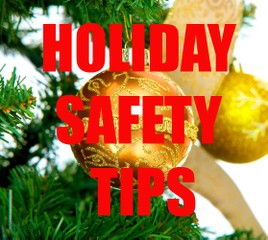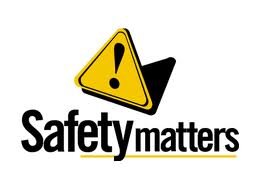The Holidays are a time for gatherings with family and friends. Unfortunately, this time of the year is also the time for colds and flu, injuries from slips and falls, and the “winter blues.” Here a few tips to help you stay healthy during the holidays:
Wash Your Hands Often – Washing your hands is one of the best ways to prevent the spread of the germs that cause colds and flu. Use soap and clean running water, rubbing your hands together for at least 20 seconds.
Cover Your Nose and Mouth When You Sneeze – Avoid using your hands. Use a tissue when available or cough/sneeze into your elbow or shoulder.
Get Health Checkups and Vaccinations – Schedule a visit with your physician and discuss what vaccinations they would recommend for you based on your age, health, and travel plans.
Eat Healthy and Be Active – We all tend to overindulge during the holidays. To stay healthy, try to limit fats, salt, and sugary foods. Be active for at least 2½ hours a week. Help kids and teens be active for at least 1 hour a day.
Handle and Prepare Food Safely – Wash your hands and kitchen surfaces often. Cook foods to the proper temperature. Refrigerate promptly. Avoid cross-contamination by keeping raw meat, poultry, seafood, and eggs away from ready-to-eat foods.
Manage Stress – Balance your responsibilities and keep your finances in check as best you can and make sure you get plenty of sleep to keep your stress levels down.
Stay Warm – Cold temperatures can lead to frostbite and hypothermia. According to the CDC, more than half of hypothermia-related deaths were of people over the age of 65. If you will be outside, wear warm socks, a heavy coat, a warm hat, gloves and a scarf. In very cold temperatures, cover all exposed skin. Use a scarf to cover your mouth and protect your lungs. If you’re staying in, don’t let your house get too cold.
Travel Safely – When traveling by car, always wear your seat belt and travel at safe speeds. Don’t drink and drive and don’t let others drink and drive. Get your car serviced before wintertime hits — or ask a family member to bring it to a garage for you. Checking things like the oil, tires, battery and wipers can make a big difference on winter roads. Best of all – avoid driving on ice and snow if at all possible.
Avoid Slipping on Ice – Falls are a common occurrence for senior citizens, especially during the winter months. Major injuries such as hip and wrist fractures, head trauma and major lacerations can occur. To avoid a fall, wear shoes with good traction and non-skid soles, and stay inside if at all possible. Replace a worn cane tip to making walking easier. Take your shoes off when you go back inside to avoid slipping on water tracked from melted ice or snow on the soles of your shoes.
Fight Wintertime Depression – Depression is an issue for seniors since it can be more difficult for them to get around. They may feel lonely or isolated. Family members should check in on them as often as possible – even a phone call can make a difference if you don’t have time to visit in person.
Prepare for Power Outages – Winter storms can lead to power outages. Make sure you have easy access to flashlights and a battery-powered radio. Know where you store your warm blankets. Keep non-perishable foods and bottled water on hand. If the power goes out, wear several layers of clothing, including a hat. Move around a lot to raise your body temperature.
Prevent Carbon Monoxide Poisoning – Don’t use generators, grills, or other gasoline- or charcoal-burning devices inside your home or garage. Install a smoke detector and carbon monoxide detector in your home and test them once a month. Replace the batteries twice a year – a good rule is to do it when the time change happens.
For more great information and tips, check out our website.



